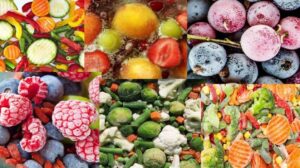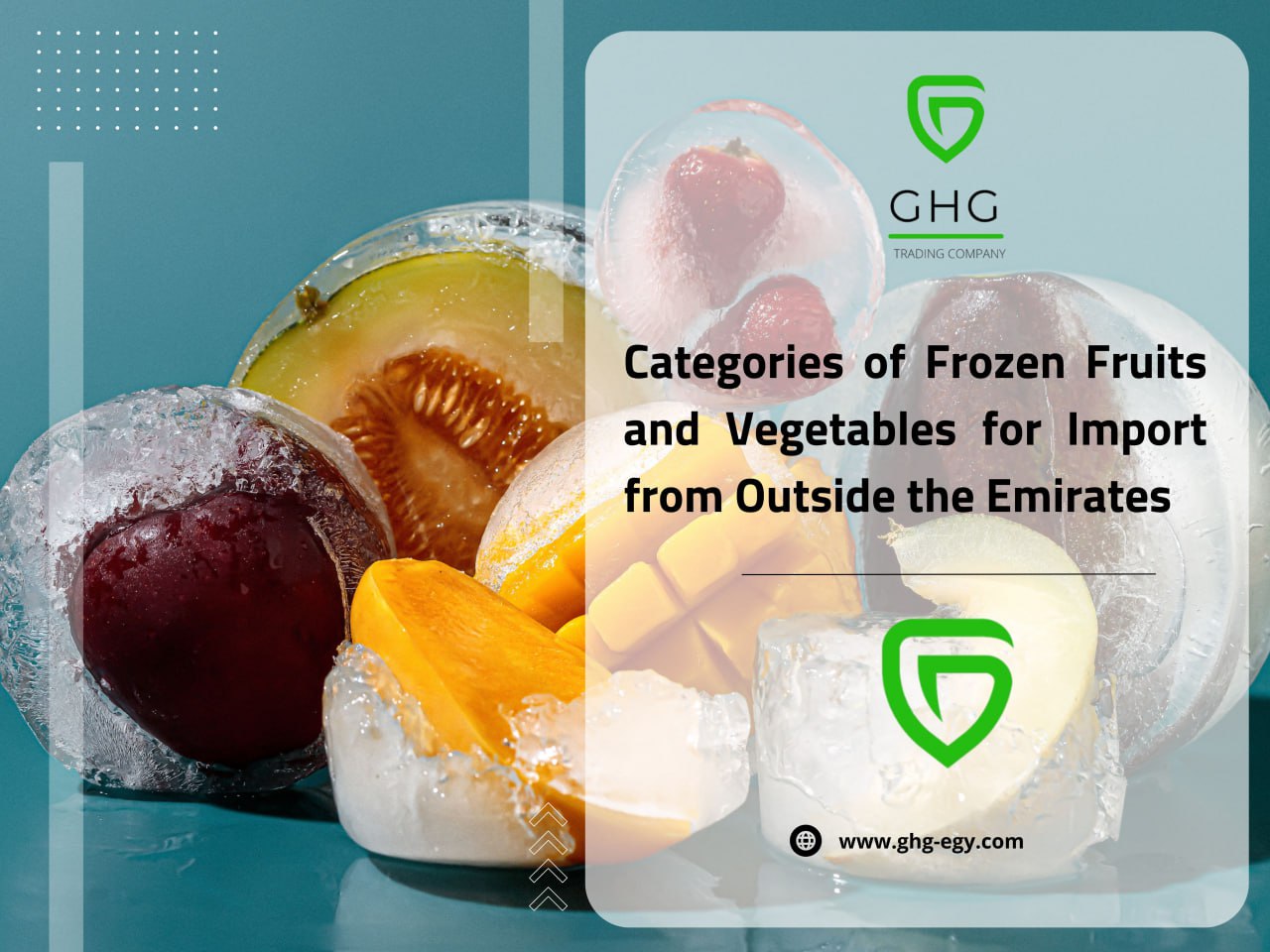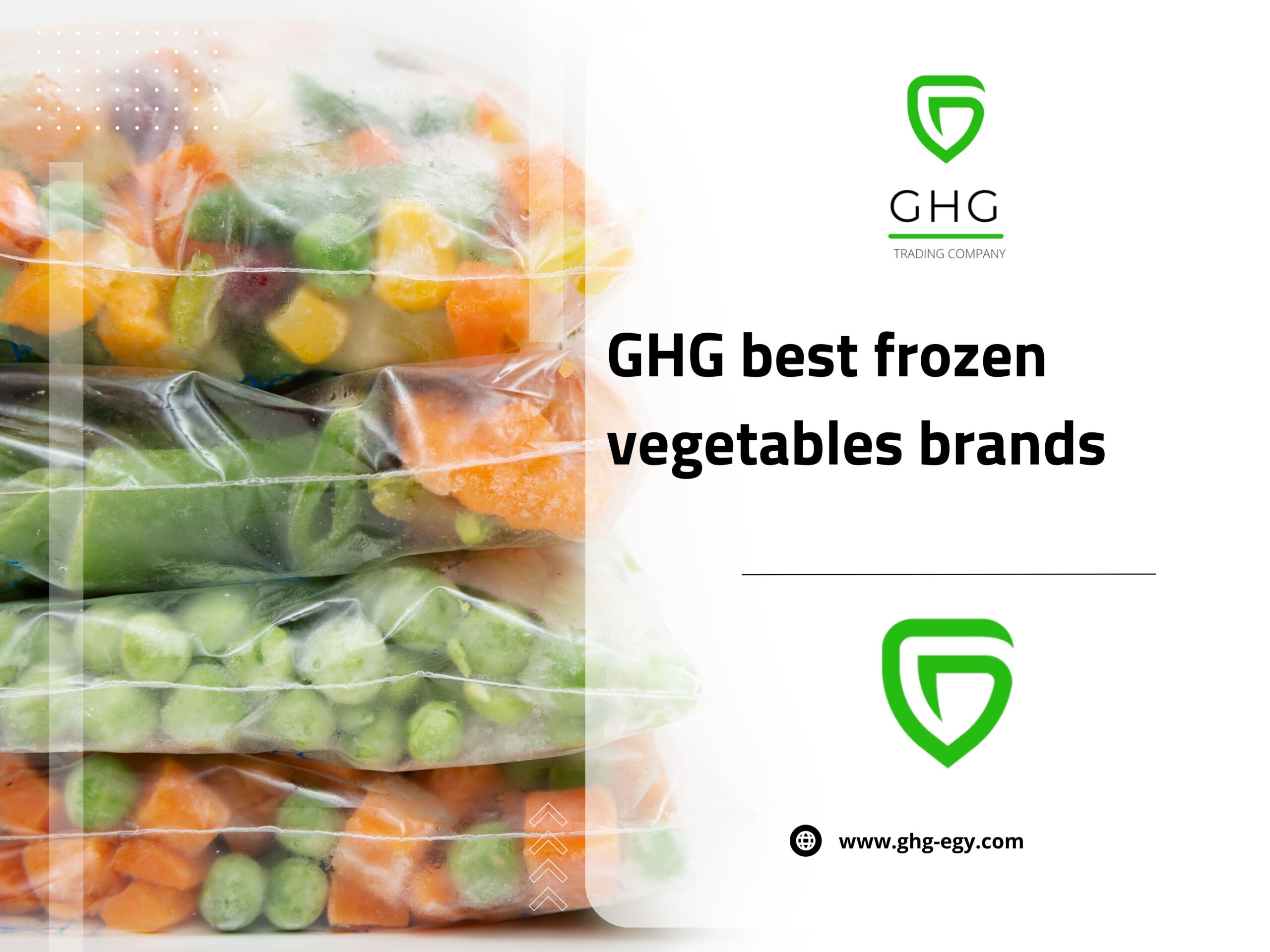In today’s fast-paced world, frozen fruits and vegetables have become indispensable staples in many households, offering convenience, nutrition, and versatility. As the demand for healthy, ready-to-eat options continues to rise, exploring the categories of frozen produce available for import from outside the Emirates becomes increasingly relevant.
Benefits of Frozen Fruits and Vegetables
-
Convenience
One of the primary advantages of frozen fruits and vegetables is their convenience. They eliminate the need for washing, peeling, and chopping, saving time and effort in meal preparation.
-
Longer Shelf Life
Frozen produce has a significantly extended shelf life compared to fresh counterparts, allowing consumers to stock up on their favorite fruits and vegetables without worrying about spoilage.
-
Nutritional Value
Contrary to common misconceptions, frozen fruits and vegetables retain much of their nutritional value. The freezing process locks in essential vitamins and minerals, making them a convenient and nutritious choice.
Popular Categories of Frozen Fruits
-
Berries
Berries, such as strawberries, blueberries, and raspberries, are among the most popular frozen fruits. They are versatile ingredients for smoothies, desserts, and baking recipes.
-
Tropical Fruits
Tropical fruits like mangoes, pineapples, and papayas are also widely available in the frozen form. Their sweet and tangy flavors add a tropical twist to various dishes.
-
Citrus Fruits
Lemons, limes, and oranges are commonly used for their refreshing citrus flavor. Frozen citrus fruits are convenient for adding zest to beverages and savory dishes.
-
Stone Fruits
Stone fruits such as peaches, plums, and cherries are prized for their juicy sweetness. Frozen stone fruits are excellent for making jams, sauces, and fruit crisps.

Popular Categories of Frozen Vegetables
-
Leafy Greens
Leafy greens like spinach, kale, and collard greens are nutrient-rich options. Frozen leafy greens are convenient additions to soups, stir-fries, and pasta dishes.
-
Root Vegetables
Root vegetables such as carrots, potatoes, and beets are hearty and versatile. Frozen root vegetables are perfect for roasting, steaming, or mashing.
-
Bell Peppers and Tomatoes
Bell peppers and tomatoes are essential ingredients in many cuisines. Frozen bell peppers and tomatoes are convenient for adding flavor and color to dishes like stews and casseroles.
-
Mixed Vegetables
Mixed vegetable blends offer a convenient way to incorporate a variety of vegetables into meals. They are commonly used in stir-fries, rice dishes, and soups.
-
Quality Considerations
When importing frozen fruits and vegetables from outside the Emirates, several quality considerations must be taken into account.
IQF vs. Traditional Freezing
Individually Quick Frozen (IQF) produce is frozen separately, preventing clumping and preserving the individual integrity of each piece. Traditional freezing methods may result in clumped or freezer-burned produce.
-
Packaging
High-quality packaging is crucial for preserving the taste and texture of frozen produce. Vacuum-sealed bags or airtight containers help prevent freezer burn and maintain freshness.
-
Source of Origin
Understanding the source of origin is essential for ensuring the quality and safety of imported frozen fruits and vegetables. Choosing reputable suppliers with stringent quality control measures is paramount.
Regulatory Compliance
Importing frozen fruits and vegetables into the Emirates requires compliance with specific regulations and standards.
Import Regulations in the Emirates
Importers must adhere to regulations regarding labeling, packaging, and food safety standards set forth by the Emirates Authority for Standardization and Metrology (ESMA).
Certifications and Standards
Certifications such as Hazard Analysis and Critical Control Points (HACCP) and Good Manufacturing Practices (GMP) assure product quality and safety.
Market Trends and Demand
The demand for frozen fruits and vegetables in the Emirates is influenced by various market trends and consumer preferences.
Growing Demand for Healthy Foods
With increasing health consciousness, consumers are seeking convenient and nutritious options, driving the demand for frozen fruits and vegetables.
Impact of Lifestyle Changes
Busy lifestyles and hectic schedules have contributed to the popularity of frozen produce as a convenient meal solution for time-strapped individuals and families.
Supplier Selection
Choosing the right supplier is crucial for ensuring the quality and reliability of imported frozen fruits and vegetables.
Reputation and Reliability:
Select suppliers with a proven track record of reliability, consistency, and adherence to quality standards.
Product Range and Quality Assurance:
Evaluate suppliers based on the variety and quality of their frozen produce offerings, as well as their commitment to quality assurance practices.

Storage and Handling
Proper storage and handling are essential for maintaining the quality and safety of frozen fruits and vegetables.
Proper Storage Conditions
Store frozen produce at recommended temperatures to prevent thawing and maintain optimal quality.
Thawing Procedures
Follow proper thawing procedures to preserve the taste, texture, and nutritional value of frozen fruits and vegetables.
Cost Considerations
Consider various factors when evaluating the cost-effectiveness of imported frozen fruits and vegetables.
Pricing Factors
Factors such as shipping costs, import duties, and currency exchange rates influence the overall pricing of imported frozen produce.
Cost-Benefit Analysis
Conduct a cost-benefit analysis to assess the value proposition of imported frozen fruits and vegetables compared to local alternatives.
Marketing Strategies
Effective marketing strategies are essential for promoting imported frozen fruits and vegetables in the Emirates.
Positioning and Branding
Position frozen produce as convenient, nutritious, and high-quality alternatives to
Summary:
In this comprehensive article, we explored the various categories of frozen fruits and vegetables available for import from outside the Emirates. We discussed the benefits of frozen produce, including convenience, longer shelf life, and retained nutritional value. Popular categories of frozen fruits include berries, tropical fruits, citrus fruits, and stone fruits, while common frozen vegetable categories include leafy greens, root vegetables, bell peppers, tomatoes, and mixed vegetables. Quality considerations such as IQF vs. traditional freezing, packaging, and source of origin were discussed, along with regulatory compliance and market trends. Supplier selection, storage, handling, cost considerations, and marketing strategies were also explored. By understanding these aspects, importers can make informed decisions to meet the growing demand for healthy and convenient food options in the Emirates.
FAQs:
Are frozen fruits and vegetables as nutritious as fresh ones?
Yes, frozen fruits and vegetables can be as nutritious as fresh ones. The freezing process locks in essential vitamins and minerals, preserving their nutritional value. However, it’s essential to choose high-quality frozen produce and follow proper storage and handling procedures to maintain their nutritional content.
What is the difference between IQF and traditional freezing methods?
IQF, or Individually Quick Frozen, involves freezing each piece of produce separately, which helps preserve its integrity and prevents clumping. Traditional freezing methods may involve freezing produce in bulk, which can lead to clumping and loss of quality.
What certifications should I look for when importing frozen fruits and vegetables?
When importing frozen produce, look for certifications such as Hazard Analysis and Critical Control Points (HACCP) and Good Manufacturing Practices (GMP). These certifications ensure that the products meet strict quality and safety standards.
How should I store and handle frozen fruits and vegetables to maintain their quality?
To maintain the quality of frozen fruits and vegetables, store them at recommended temperatures and follow proper thawing procedures. Avoid refreezing thawed produce and ensure that they are properly sealed to prevent freezer burn.



